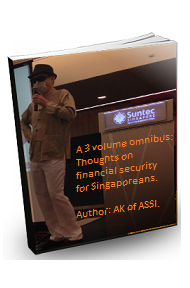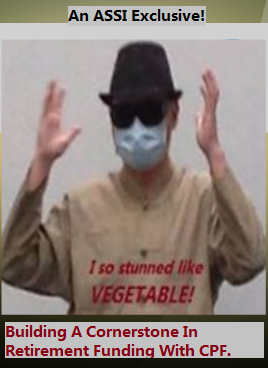In the INVEST section of The Sunday Times, it was reported that more Singaporean investors are feeling bullish about investing in Japanese real estate.
One agent who is marketing Japanese residential properties said that he would not have expected the craze he is seeing now when he started just a year ago.
It seems that local banks are also jumping onto the bandwagon as UOB and OCBC now provide loans to Singaporeans for purchases of Japanese real estate for up to 70% of the property's value. A year ago, only Bank of China was providing such loans.
Someone who bought a 275 sq ft studio apartment in Tokyo last year for $400,000 is very pleased that he did so. Apparently, similar apartments now go for some 9% higher in price.
I believe in investing in real estate for income. So, what I would like to know is how much is such a property able to generate in rental income. It was not reported in the article.
A search online shows that similar properties in central Tokyo could fetch some $1,800 a month in rent which gives a gross yield of 5.4% per annum. Not bad.
So, am I interested in buying an apartment in Japan now for rental income? Well, apart from the fact that prices are a bit higher now which means that the gross yield for the same 275 sq ft apartment is probably lower now in the region of 4.95%, everything else remaining equal, I am also not comfortable with the idea of plonking so much money in one single property in a country which arguably I am less familiar with than Singapore.
If we were to take a loan for 70% of the value of the property (current value being $436,000), we would still have to fork out $130,800, not including other costs related to the transaction. This is quite a bit of money for most average Singaporeans.
Of course, the beauty of this arrangement is leverage. Taking a 70% loan would mean amplifying the rental yield by more than 200%. So, the gross yield on cost, based on current prices of similar properties, could be above 10%.
Another attraction of such a purchase is the possibility of selling the property for capital gains in future.
If we are pretty risk averse and would buy such properties without taking any loans, I believe that becoming unit holders in Saizen REIT would make more sense.
1. Buying into Saizen REIT means buying into a portfolio of more than 130 residential buildings (not individual apartments) across Japan which reduces concentration risk.
2. Buying into Saizen REIT means buying these residential buildings at a hefty 20% discount to valuation. I do not think we will be able to buy an apartment in Japan at 20% below valuation.
3. Buying into Saizen REIT means getting a 7.3% distribution yield with current unit price at about 88c. This could reduce to 5.7% if cash of up to 20c per unit were to be returned to unit holders. (Read related post number 1 below.)
4. Buying into Saizen REIT means having a team of managers take care of our properties and we don't have to worry ourselves with work such as rental collection, hedging against foreign exchange risk (if at all possible) and the repatriation of funds.
For someone who is investing for income, who does not wish to take on too much risk and who rather not have too much work in being a landlord, given a choice, investing in Saizen REIT seems like a pretty good idea compared to buying a single apartment in Japan.
Related posts:
1. Is the half yearly DPU of 3.25c sustainable?
2. Below valuation and replacement cost.
3. Fukushima and investing in Japanese real estate.

















